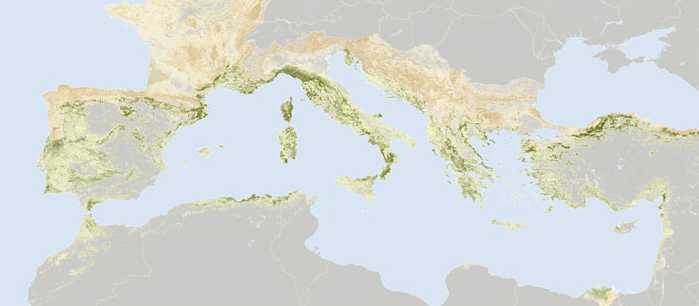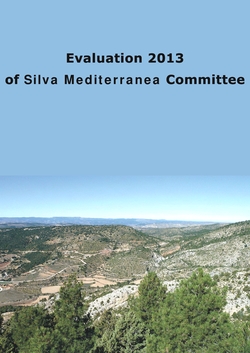|
 |
The missionThe mission of Silva Mediterranea is to:
The historyIn 1911, the idea of Mediterranean forestry cooperation was launched and in 1922, a Mediterranean Forestry League was established under the name of Silva Mediterranea. In 1948, Silva Mediterranea evolved into a FAO statutory body as a Committee of Mediterranean Forestry Questions where the Mediterranean member countries of the European Forestry Commission, the Near East Forestry Commission and the African Forestry and Wildlife Commission could meet, share experiences and establish cooperative programmes. Silva Mediterranea adopted a conceptual strategic framework, the Mediterranean Forest Action Programme, in order to support Mediterranean countries in setting up their own forest policies and implementing the recommendations of the United Nations Conference on Environment and Development (Rio, 1992), which urged all countries to draw up national forest programmes. Where research was needed, the Committee established cooperative research networks on subjects identified during sessions. Six research networks were established on:
2002 - Silva Mediterranea gears up for changeAt the committee's 18th session held at FAO headquarters in Rome in April 2002, the future of Silva Mediterranea was the main topic on the agenda. Based on an external review of Silva Mediterranea and its networks carried out as recommended by the committee's previous session in Antalya, Turkey in October 1997, a number of changes were recommended to reinvigorate Silva Mediterranea. The committee proposed that the research networks be phased out and replaced by working groups with a specific mandate and clear objectives, outputs and time frames. It urged Silva Mediterranea to establish more effective alliances with other institutions working in the Mediterranean region. The meeting suggested that Silva Mediterranea should address in future: the finalization of past work that holds potential for delivering important and useful output; activities leading to the sustainable management of Mediterranean forests and woodlands; and the contribution of Silva Mediterranea to sustainable development in general. Silva Mediterranea was asked to approach forest issues in the region in ways consistent with new paradigms and developments emerging both in the Mediterranean region and in the international policy dialogue on forests. The participants noted that Silva Mediterranea should be more responsive to the needs of countries, in particular in the following areas:
Member countries of Silva Mediterranea have since worked to implement these recommendations.. 2013 evaluation of Silva Mediterranea
Given that the above decision was made coincidentally with the end of the WG’s working plans period (2009-2012), the initial mandate of the evaluation focused on the achievements of the working groups referring specifically to their 2009-2012 working plans. The evaluation was made by an independent panel composed of Ms Christine Farcy, Mr Alain Chaudron, Mr Ameur Mokhtar, Mr Placido Plaza, and Mr Giuseppe Scarascia. The evaluation started in January 2013. A midway progress report was presented on 17 June 2013 during a working session in Rome. The draft evaluation report was presented at the 5th meeting of the Enlarged Executive Committee of Silva Mediterranea on 4 December 2013 in Hammamet, Tunisia. The final version of the evaluation report was presented on 27 June 2014 at the extraordinary session of the Committee organized during COFO 22. Report of the evaluation 2013 of Silva Mediterranea Committee |
last updated: Wednesday, March 16, 2022


 The Committee Silva Mediterranea decided at its 21st Session in Antalya in 2012 to implement an evaluation of the Committee.
The Committee Silva Mediterranea decided at its 21st Session in Antalya in 2012 to implement an evaluation of the Committee.